Even during the fierce resistance war against the French, the poems exchanged between them still exuded the beauty of learned literature and the spirit of national solidarity. This was not only a testament to the strong continuity of the national poetic tradition, but also vividly reflected the spirit and mettle of the patriotic intellectuals of that time.
Kindred spirits
Born into a Confucian family, where his father, Nguyen Sinh Sac, was a learned Confucian scholar who passed the Nguyen Dynasty's Phó bảng exam, President Ho Chi Minh was soon imbued with the quintessence of traditional culture. From his youth, he was nurtured with a solid foundation of Chinese studies in his father's strict educational environment. Although he later traveled across the world and absorbed Western civilization, he still retained a sensitive poetic soul and the ability to compose skillful Đường luật poetry.
President Ho Chi Minh - Vietnam's outstanding cultural figure. Photo: Document
In 1948, while the resistance war against France was taking place fiercely, at the Viet Bac base, President Ho Chi Minh gave poems to two famous Confucian scholars:
Mr. Bui Bang Doan (1889-1955) was a typical figure of the generation of Vietnamese intellectuals during the transition from feudalism to the revolutionary period. Born into a family with a Confucian tradition in Lien Bat commune, Ung Hoa district (now part of Hanoi ), he inherited the educational foundation from his family, with his grandfather being Doctor Bui Tuan and his father being Governor Bui Tap.
Although he lost his parents at an early age, under the guidance of his uncle, Mr. Thieu Bao Van Dinh, Bui Bang Doan and his two older brothers created the phenomenon of "Ha Dong Tam Bang" when they all passed the Binh Ngo examination in 1906. Mr. Doan passed the Bachelor's degree and later served in the Nguyen Dynasty, holding many important positions such as District Chief in many localities and finally Minister of Justice (1933-1945).
The special thing about Mr. Bui Bang Doan's life is that he changed in time with the country's destiny. When the revolution succeeded, he accepted President Ho Chi Minh's invitation to join the Presidential Advisory Board in November 1945. In the invitation, Uncle Ho expressed his respect for Mr. Bui Bang Doan's "high education and rich experience". He was then elected as a delegate to the first National Assembly and held important positions such as Head of the Government's Special Inspectorate and Head of the National Assembly Standing Committee.
Mr. Bui Bang Doan. Photo: Document
Even during the difficult years of the resistance war, when he became paralyzed in late 1948, he continued to contribute to the country as Acting Head of the National Assembly Standing Committee in Viet Bac. His life is a vivid testament to the spirit of patriotism and the exemplary transition from a Nguyen Dynasty official to a leader of the new regime, making an important contribution to the nation's resistance war and national construction.
During the meaningful meeting in 1948, Uncle Ho wrote the poem "For Bui Cong" in Chinese characters:
贈裴公
看書山鳥棲窗扦,
批札春花照硯池。
捷報頻來勞驛馬,
思公即景贈新詩。
Transcription:
Gift to Bui Cong
The mountain bird and his wife are both majestic and fierce,
Spring flowers shine on the ink pond.
The spy agency translated the code,
The public works give new poems.
Translation:
While reading a book, a wild bird perched on the window sill,
While approving documents, spring flowers reflect in the inkstone.
Always having to return to report victory news, the post horse is also tired,
Missing you, I wrote a poem to you.
Although the poem is short, it is both classical in style and contains profound messages about current events. The first two lines depict a peaceful scene typical of a study: wild birds perched by the window while reading, spring flowers reflected in the inkstone while approving official documents . These are not only poetic images, but also reflect the dedicated working atmosphere of an upright mandarin. Uncle Ho skillfully used these images to honor the qualities of Mr. Bui Bang Doan - a patriotic Confucian scholar who changed with the times, but still maintained the noble demeanor of an intellectual.
Uncle Ho and Mr. Bui Bang Doan at the ceremony to promote General Vo Nguyen Giap. Photo: Document
The last two sentences shift from a quiet space to the vibrant atmosphere of the resistance war. The image of the "hard-working post horse" carrying the news of victory not only speaks of the heroic atmosphere of the era, but also implicitly praises Mr. Bui's contribution to building the revolutionary government. The concluding sentence " Tu cong tuc canh tang tan thi " expresses Uncle Ho's respectful and close feelings towards a respected comrade.
What is special is the way Uncle Ho skillfully combined two contrasting areas in the poem: on one side is the quiet space of the study with wild birds and spring flowers; on the other side is the urgent atmosphere of the resistance war with horse-drawn post trips carrying news of victory. This contrast does not create a sense of discontinuity but on the contrary, further highlights the spirit of a patriotic intellectual, both maintaining the noble demeanor of a scholar and actively participating in the resistance war and national construction.
In response to this sincerity, Mr. Bui Bang Doan wrote a poem in original rhyme:
鐵石一心扶種族,
江山萬里守城池。
知公國事無餘暇,
操筆仍成退虜詩。
Transcription:
Iron and stone are the heart of the race,
The mountains and rivers protect the citadel.
Know the country's affairs without end,
Writing but failed the exam.
Translation:
Iron-hearted for the race,
Thousands of miles of mountains and rivers to keep the foundation.
Knowing that he is busy with state affairs,
Waving pen to write poetry to chase away the enemy.
The poem by Mr. Bui Bang Doan is not only a normal "response" composition but also an expression of the passion of a patriotic intellectual, showing deep sympathy with the revolutionary path. The first two lines express a strong declaration of political stance and patriotism. The image of "iron and stone" not only speaks of a steadfast will but also shows indomitability, wholeheartedly devoted to the nation. The phrase "giang son van ly" (mountains and rivers thousands of miles) evokes the vast space of the country, while emphasizing the great responsibility in protecting every inch of the homeland. Through that, Mr. Bui clearly affirmed his stance: although he came from the Nguyen Dynasty's mandarin class, he completely put his faith in the revolution.
The last two sentences turn to express admiration and deep understanding for Uncle Ho. The sentence "Tri cong quoc su vo du ha" shows that Mr. Bui clearly understands the busyness and hardship of Uncle Ho in leading the country. In particular, the concluding sentence " Thao but nhung thanh thoai lo thi" not only praises Uncle Ho's literary talent but also emphasizes the role of poetry in the resistance war - even verses become weapons to repel the enemy. This is very close to Uncle Ho's poetic perspective: "Poets must also know how to volunteer".
Bui Bang Doan, Hue - 1942. (Photo Archive)
If Uncle Ho's poem paints a picture of peace in the midst of war, Mr. Bui's poem has a more heroic and courageous tone. This is shown through the use of powerful images such as "thiet thach", "van ly", and especially the verbs "thu" (to keep) and "thoai" (to chase) - words with a clear fighting spirit.
The poem also shows the change in the ideology of the Confucian intellectual class at that time. From being mandarins of the feudal court, they recognized the trend of the times, put their faith in the revolution and actively participated in the resistance. Mr. Bui Bang Doan is a typical example of this change, and the poem is a vivid demonstration of his patriotism and will to accompany the revolution.
In addition to Mr. Bui Bang Doan, there was also Mr. Vo Liem Son, who was born into a Confucian family with a tradition of patriotism in Pho Minh village, Can Loc, Ha Tinh. His father was Confucian scholar Vo Kieu Son, a person who participated in the Can Vuong movement against the French. In 1905, Mr. Vo Liem Son entered the National School in Hue, where he had the chance to meet his classmate who would later become President Ho Chi Minh (then Nguyen Tat Thanh).
Teacher Vo Liem Son. Photo: Document
With a solid foundation in Sinology, he successively passed the Thanh Chung (1911) and Bac Nhan (1912) degrees in Sinology. Although he was appointed as the District Chief of Duy Xuyen (Quang Nam), with the spirit of a patriotic intellectual, he dared to confront the French colonialists and was dismissed from his position. In his later educational career, he trained many talents for the country such as Tran Phu, Vo Nguyen Giap, Ha Huy Tap, Phan Dang Luu, Nguyen Chi Dieu, Dao Duy Anh, Nguyen Khoa Van (Hai Trieu), Ta Quang Buu...
When Japan staged a coup against France in 1945, he joined the Viet Minh with his son Vo Gioi Son. During the years of resistance against the French, grieving over the death of his son at the hands of the enemy, he remained steadfast on the revolutionary path, taking on many important responsibilities in the resistance apparatus of Inter-Zone IV.
In 1948, during a trip to Viet Bac to attend the National Cultural Conference, he had the opportunity to meet his former student, General Vo Nguyen Giap, and his old classmate, now President Ho Chi Minh. It was on this occasion that Uncle Ho wrote the Tang poem in Chinese characters "Tang Vo Cong" - a work that not only expressed close friendship but also reflected the spirit of the times and the belief in the victory of the resistance war:
贈武公
千里公尋我,
百感一言中。
事民願盡孝,
事國願盡忠。
公來我欣喜,
公去我思公。
贈公只一句,
抗戰必成功。
Transcription:
Give Martial Arts
Heavenly justice seeks me,
A hundred feelings in one word.
The people's wish to be filial,
The vow of loyalty to the country.
I am happy in the future,
Public crossroads.
Give credit where credit is due:
"The resistance will be successful".
Translation:
Long distance, thousands of miles he came to find me,
So much emotion in one word!
Worshiping people, hoping to end filial piety,
Worship the country and hope to be loyal.
You came, I was happy,
You come back, I miss you again.
Just let me give you this sentence:
"The resistance will definitely succeed."
This poem not only expresses the deep affection between close friends, but also reflects the patriotism and belief in the victory of the revolution. The first two lines open up the vast space of the reunion: "Thien ly cong tam nga, bach cam nhat ngon trung". The image of "thousand miles" not only speaks of the geographical distance but also contains the long period of time since the two people were separated - from the days when they were classmates at the Hue National School until they met again as revolutionary leaders. "Bach cam nhat ngon trung" shows that even though time has passed, the friendship is still so deep that just one word is enough to evoke hundreds of emotions.
The next two sentences: "The people's wish is to be filial, the country's wish is to be loyal" are words praising the noble qualities of Mr. Vo Liem Son. Uncle Ho skillfully used the two words "filial piety" and "loyalty" in a new way: not loyalty to the king as in the feudal concept, but loyalty to the country, filial piety to the people. This is also the meeting of the two people's thoughts - from the foundation of traditional Confucianism, they advanced to the path of revolution for the people and the country.
The third pair of verses: "Cong lai nga han hi, cong khu nga tu cong" are touching verses, expressing Uncle Ho's sincere and close feelings for his old friend. The joy of meeting and the longing of parting are expressed in a simple but sincere way, highlighting the strong friendship that transcends time and status.
The last two lines: "With just one effort, the resistance will surely succeed" have both personal and contemporary significance. This is not simply a dedication to Mr. Vo Liem Son, but also a belief, a strong affirmation of the inevitable victory of the resistance. Placing the sentence "The resistance will surely succeed" at the end of the poem further emphasizes this meaning.
And Mr. Vo Liem Son responded with a poem full of spirit:
逢君喜公健,
戰事百忙中。
對話惟軍國,
相期在孝忠。
雄才源不勢,
大道本為公。
相見重來日,
抗戰已成功。
Transcription:
Phung Cong is happy with the lawsuit,
War is in the air.
Military-only dialogue,
Similarities in filial piety.
Unrivaled resources,
The great path is the work.
See you again tomorrow,
The resistance was successful.
Translation
(Translated by scholar Dao Duy Anh)
I'm glad to see you.
A hundred worries are just a facade.
Chat for People and Country
Dating in Hieu, Trung
Rare natural resources
The great way is the same
See you again
The resistance was successful.
The poem not only responds to Uncle Ho's feelings but also shows the spirit of a patriotic intellectual and a strong belief in the victory of the revolution. The first two lines express the joy of meeting an old friend in the context of the country's resistance. The phrase "bạch mang" (hundreds of busy things) shows a deep understanding of the responsibility of the head of the country in wartime, and also shows the friend's concern and sympathy.
The pair of sentences continues and corresponds to the idea in Uncle Ho's poem about "filial piety" and "loyalty". If Uncle Ho used these two words to praise Mr. Vo's qualities, here Mr. Vo affirmed that this is a similarity, a common ideal of both people. "Quân quốc" here no longer has a feudal meaning but has been elevated to "Đoàn, Nước" - expressing progressive, revolutionary thoughts.
The two middle lines are unique verses, expressing admiration for Uncle Ho's talent and affirming that the revolutionary path is a righteous one. "Hung tai" refers to Uncle Ho's extraordinary talent, while "Dai dao" is the revolutionary path for national independence. The phrase "ban vi cong" (capital for public service) emphasizes the national and people-oriented nature of the resistance.
The two concluding sentences: "Tuong kien trung lai nhat, Khang chien di thanh cong" is a confident response to Uncle Ho's message. If Uncle Ho said "Khang chien tat thanh cong" (will definitely succeed), then Mr. Vo used "di thanh cong" (has succeeded) - a stronger expression, showing absolute faith in the victory of the revolution. The image of "the day of return" evokes a bright future when the country is completely liberated.
In terms of art, the poem strictly adheres to the Tang Dynasty poetry format, with subtle antitheses: "dialogue" versus "sympathy", "king and country" versus "loyalty", "heroic talent" versus "great path". In particular, the flexible use of historical allusions and Chinese terms has contributed to highlighting revolutionary ideas within the framework of a classical poem.
The art of winning hearts and minds through President Ho's poetry
The art of winning hearts and minds through President Ho Chi Minh's poetry is a profound subject, demonstrating his talent and strategic vision in applying traditional culture to the revolutionary cause. The special thing about this art lies not only in its purely literary aspect, but also in its profound thought and humanity.
Uncle Ho used poetry as a means of communication in the special historical context of the nation. Photo: Document
First of all, it is necessary to recognize Uncle Ho's use of poetry as a means of communication in the special historical context of the nation. In the early period of the revolution, the country was in the transition period from feudal society to the period of fighting for independence. In that context, the Confucian intellectual class still played an important role in society, especially in rural areas, where they had a great influence on the ideology and spiritual life of the people.
With his profound strategic vision, Uncle Ho realized that to successfully carry out the revolutionary cause, it was necessary to have the consensus and support of all classes in society, including the Confucian intellectual class. He skillfully used their own language, culture and familiar means of communication - classical poetry - to build a bridge of culture and ideology.
Uncle Ho's art of winning people's hearts is expressed through many subtle aspects.
The first is respect for cultural traditions. In the poems he composed with Confucian scholars, Uncle Ho always strictly followed the rules of Tang poetry regarding rhyme and antithesis. This shows respect for traditional culture and the values that Confucian scholars promoted.
The second is the art of "using the old to awaken the new". Uncle Ho skillfully brought revolutionary ideas and new values into the framework of classical poetry. For example, in the poem dedicated to Mr. Vo Liem Son, Uncle Ho reinterpreted the concept of "loyalty and filial piety" in the revolutionary spirit: loyalty to the country, filial piety to the people. This is a way to skillfully transform traditional values, not completely denying them but raising them to a new level, in line with the demands of the times.
Third is the art of "reviewing the past to understand the present". In poetic dialogues, Uncle Ho often mentioned old memories and old relationships to evoke feelings and empathy. From there, he led the interlocutor to thoughts about the present and future of the country. This is a very subtle psychological approach, creating closeness and trust.
President Ho Chi Minh's art of winning people's hearts through poetry is a vivid demonstration of his talent and strategic vision. Photo: Document
Fourth is the art of "harmonizing differences". Uncle Ho did not rigidly impose revolutionary ideology but always sought to connect common points between traditional and revolutionary ideology. In his poetry, values such as patriotism, love for the people, morality, intelligence, etc. were promoted in a way that was both consistent with Confucian ideology and revolutionary.
In particular, Uncle Ho's art of winning people's hearts was also shown in his sincerity and simplicity in communication. Even though he was the leader of the nation, in his poems, Uncle Ho still expressed his sincere and close feelings towards his old friends. This created a strong persuasive power, making readers feel the sincerity and nobility of his thoughts.
The effectiveness of this art of winning people's hearts is clearly demonstrated through the poems of the Confucian scholars. They not only responded with artistically appropriate verses, but also expressed their sympathy and support for the revolutionary path. This is demonstrated by the fact that they also used revolutionary images and ideas in their poems, such as in the poem of Vo Liem Son with the sentence "The resistance was successful".
Uncle Ho's art of winning people's hearts through poetry also had great significance in building national unity. Through poetic dialogues, he made an important contribution to winning the support of Confucian intellectuals for the revolution. Many of them became active participants in the resistance war, contributing their intelligence and enthusiasm to the cause of national liberation.
The lessons from Uncle Ho's art of winning people's hearts and minds remain valuable today. They are lessons about respecting and promoting traditional cultural values, about the art of finding common ground to create consensus, and about the important role of culture in the process of building and developing the country. In the modern context, when the country is in the process of deep international integration, these lessons become even more meaningful in building great national unity and developing the country.
It can be said that President Ho Chi Minh's art of winning people's hearts through poetry is a vivid demonstration of his talent and strategic vision. This is not only literary art but also the art of leadership, the art of building and developing revolutionary forces. The poetic dialogues between him and Confucian scholars are not only beautiful literary works but also valuable lessons on the art of solidarity and gathering forces in the revolutionary cause of the nation.
To this day, after more than 75 years, the poetic dialogues between President Ho Chi Minh and the Confucian scholars still retain their profound historical and humanistic value. They are not only beautiful poems in terms of art, but also valuable documents reflecting the spirit of national solidarity and the harmonious combination of tradition and revolution in Ho Chi Minh's thought.
AD Advertisement
Source: https://baonghean.vn/chu-tich-ho-chi-minh-tang-tho-nho-si-10297643.html


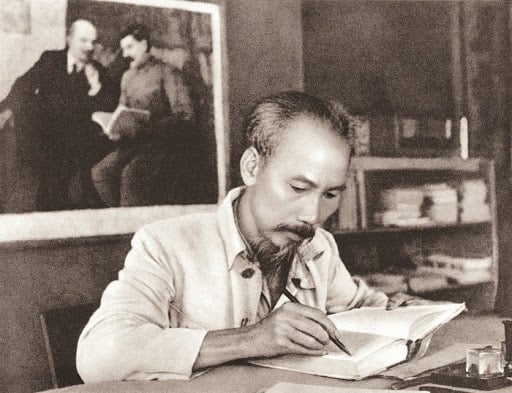
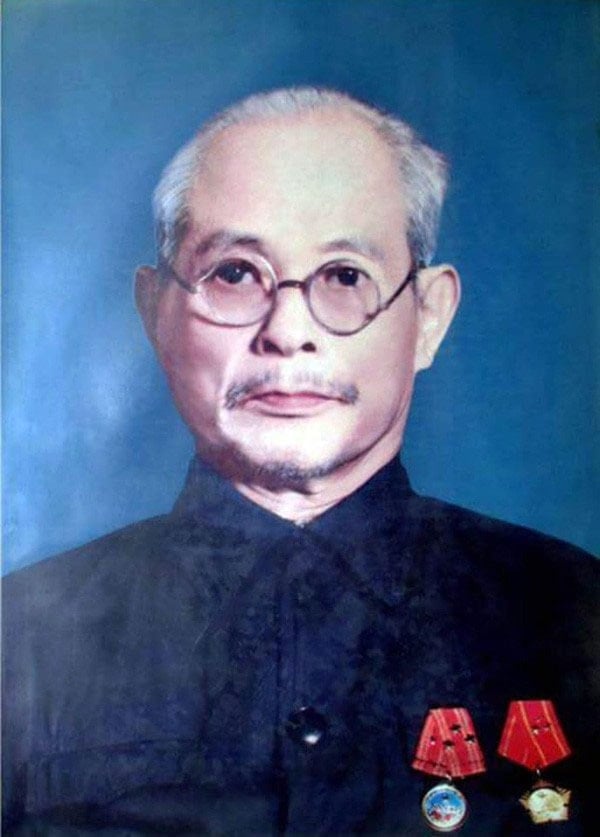
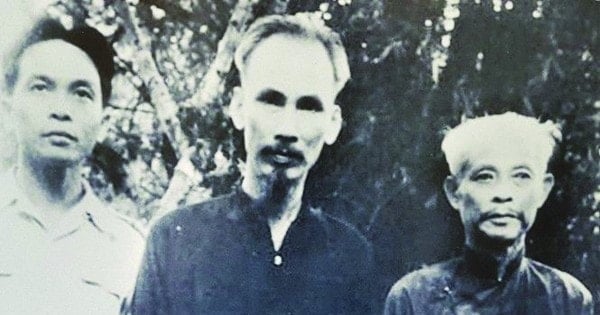
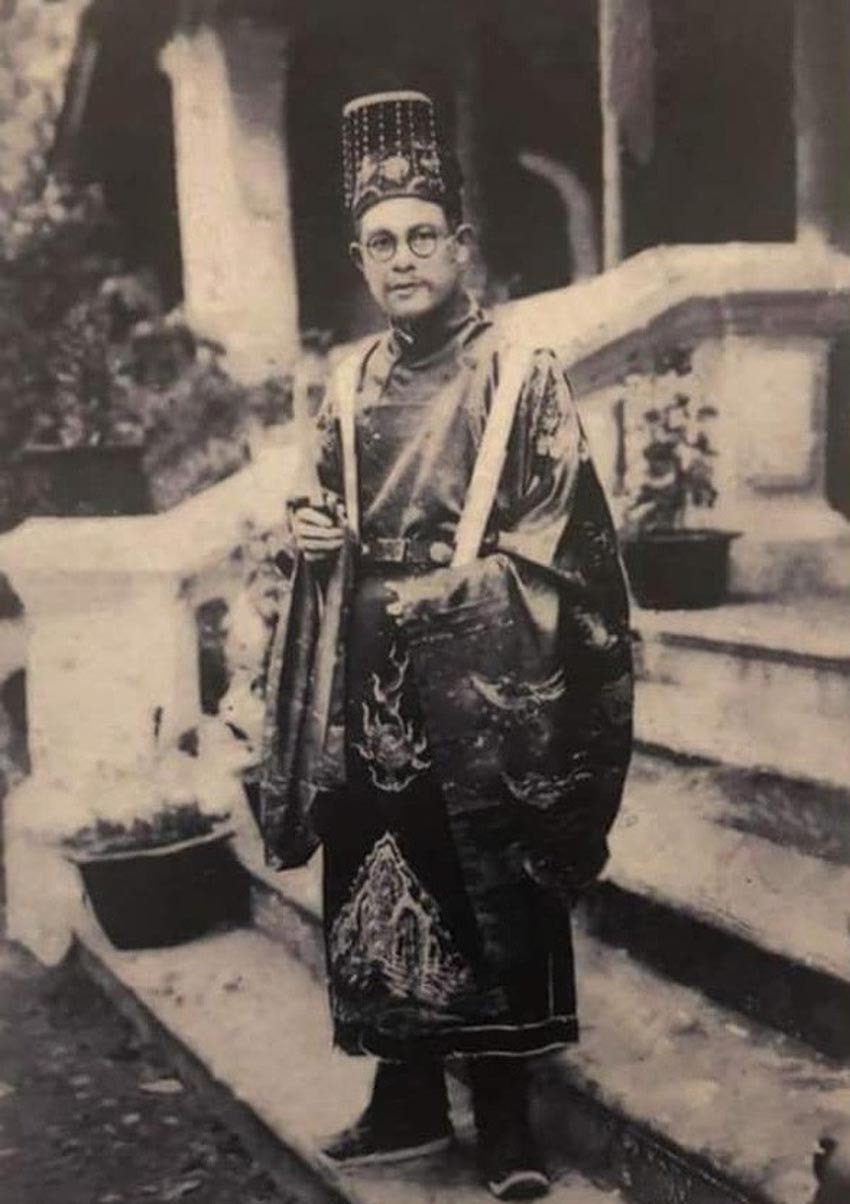
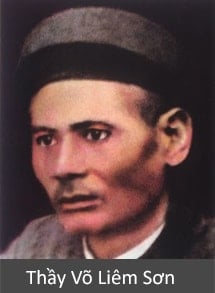
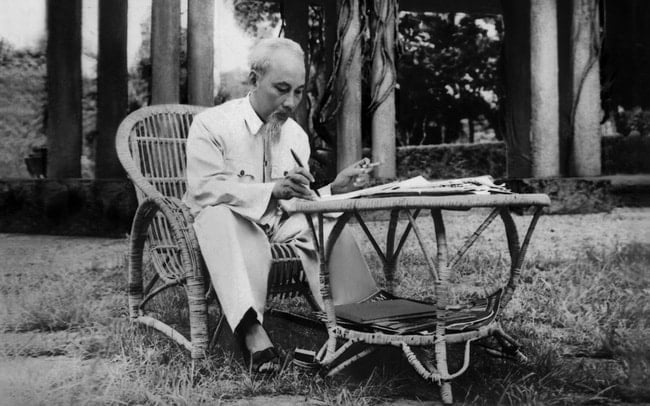
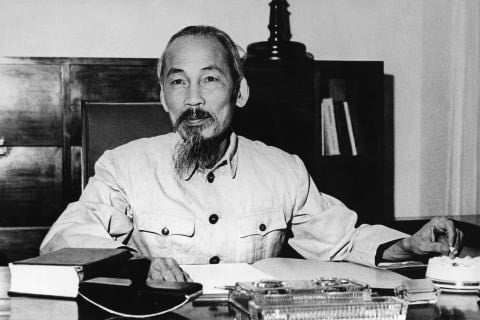

![[Photo] Prime Minister Pham Minh Chinh chairs the Government's special meeting on law-making in May](https://vphoto.vietnam.vn/thumb/1200x675/vietnam/resource/IMAGE/2025/5/22/1c880aae96fd4e0894abc47a46fe19ba)

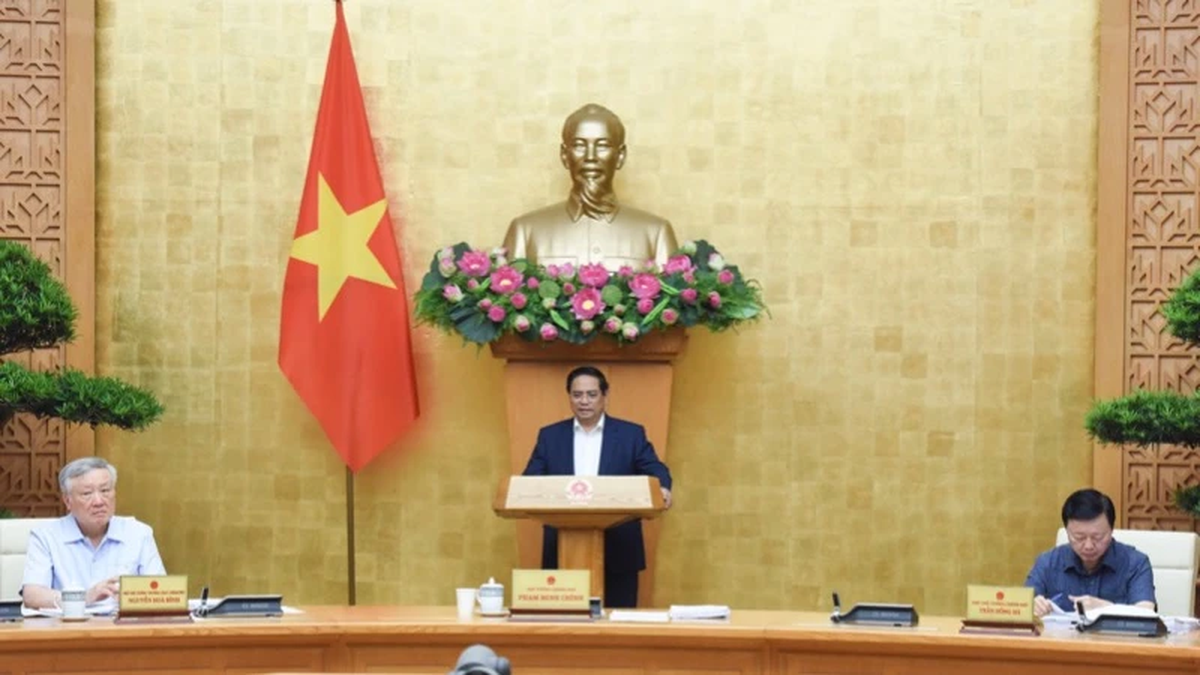

![[Photo] General Secretary To Lam chairs a working session with the Central Internal Affairs Commission](https://vphoto.vietnam.vn/thumb/1200x675/vietnam/resource/IMAGE/2025/5/22/3b7790f499da45b2803d8ae253207ef1)
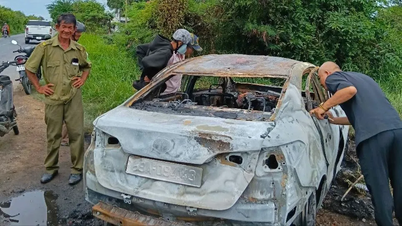

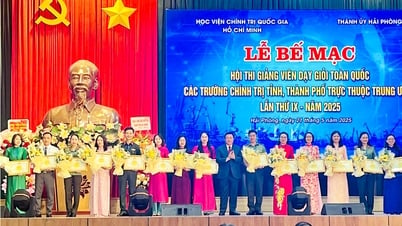

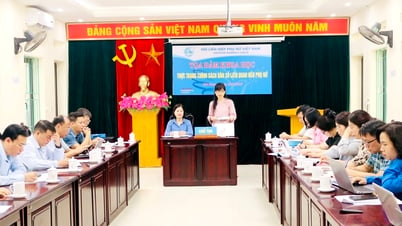
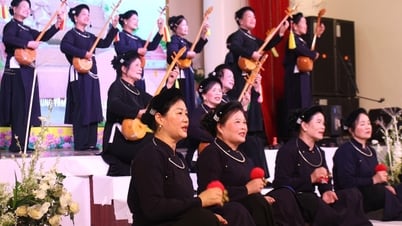

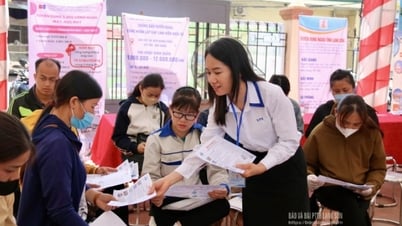
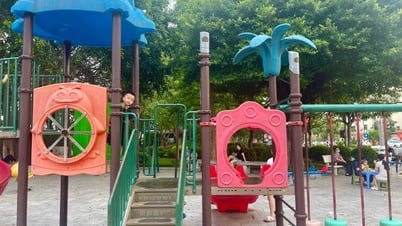




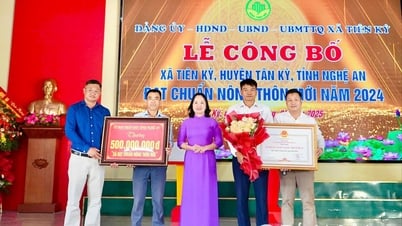
![[Infographics]: Which exceptional cases will be issued paper Health Insurance cards from June 1, 2025?](https://vphoto.vietnam.vn/thumb/402x226/vietnam/resource/IMAGE/2025/5/22/d05f5a2fb7c34b69a51e0dbe5c5f4d18)
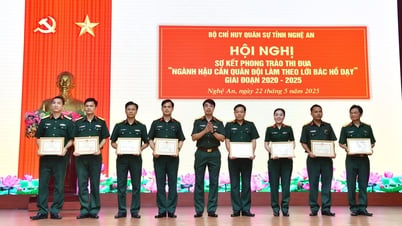
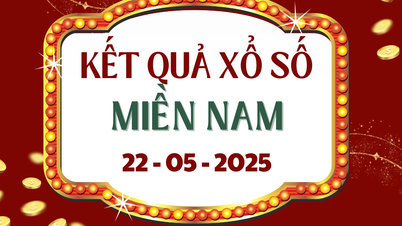
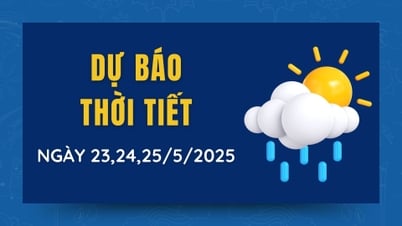




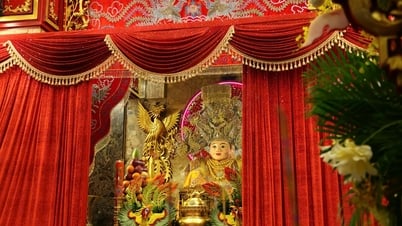



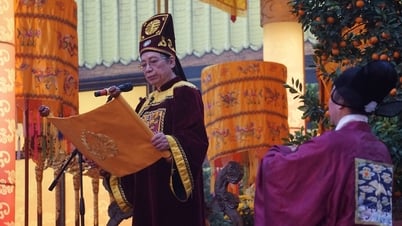


















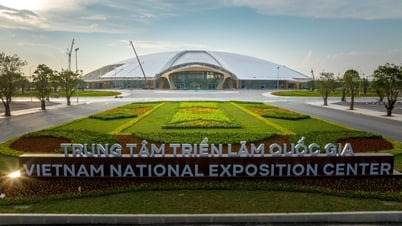

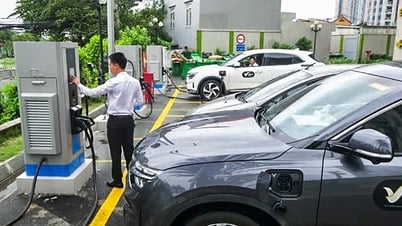
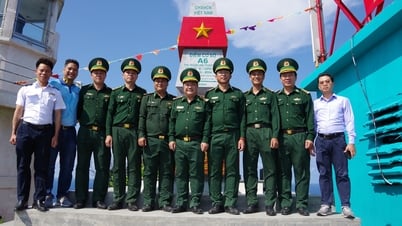
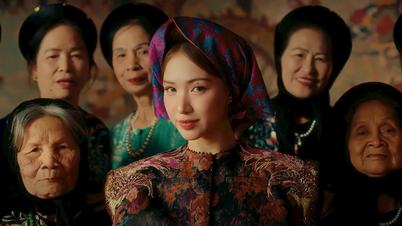
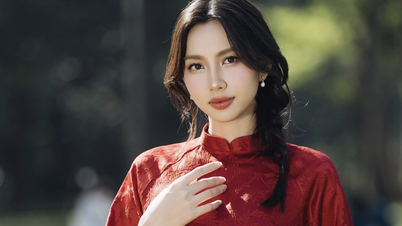

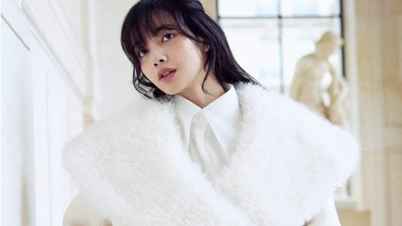



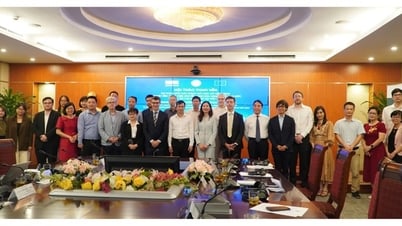

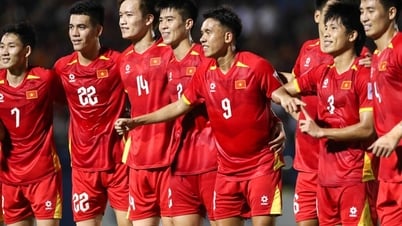

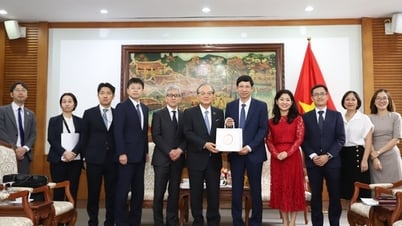
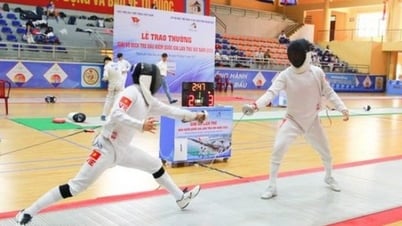
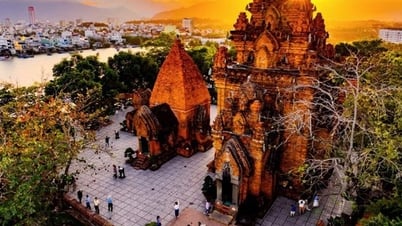
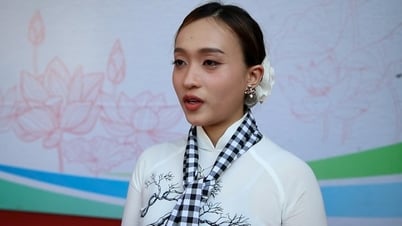
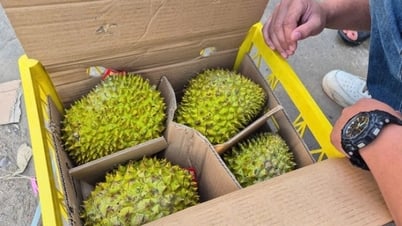

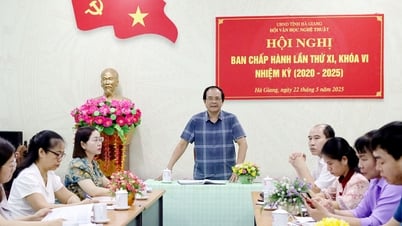
![[Podcast] Week introducing more than 500 OCOP products in Hanoi](https://vphoto.vietnam.vn/thumb/402x226/vietnam/resource/IMAGE/2025/5/22/d144aac2416744718388dbae3260e7fd)





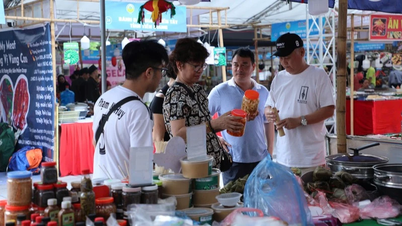
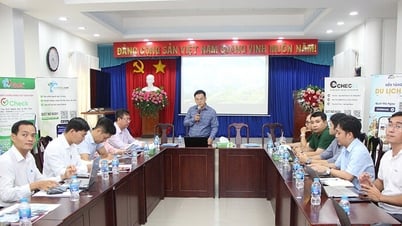

Comment (0)